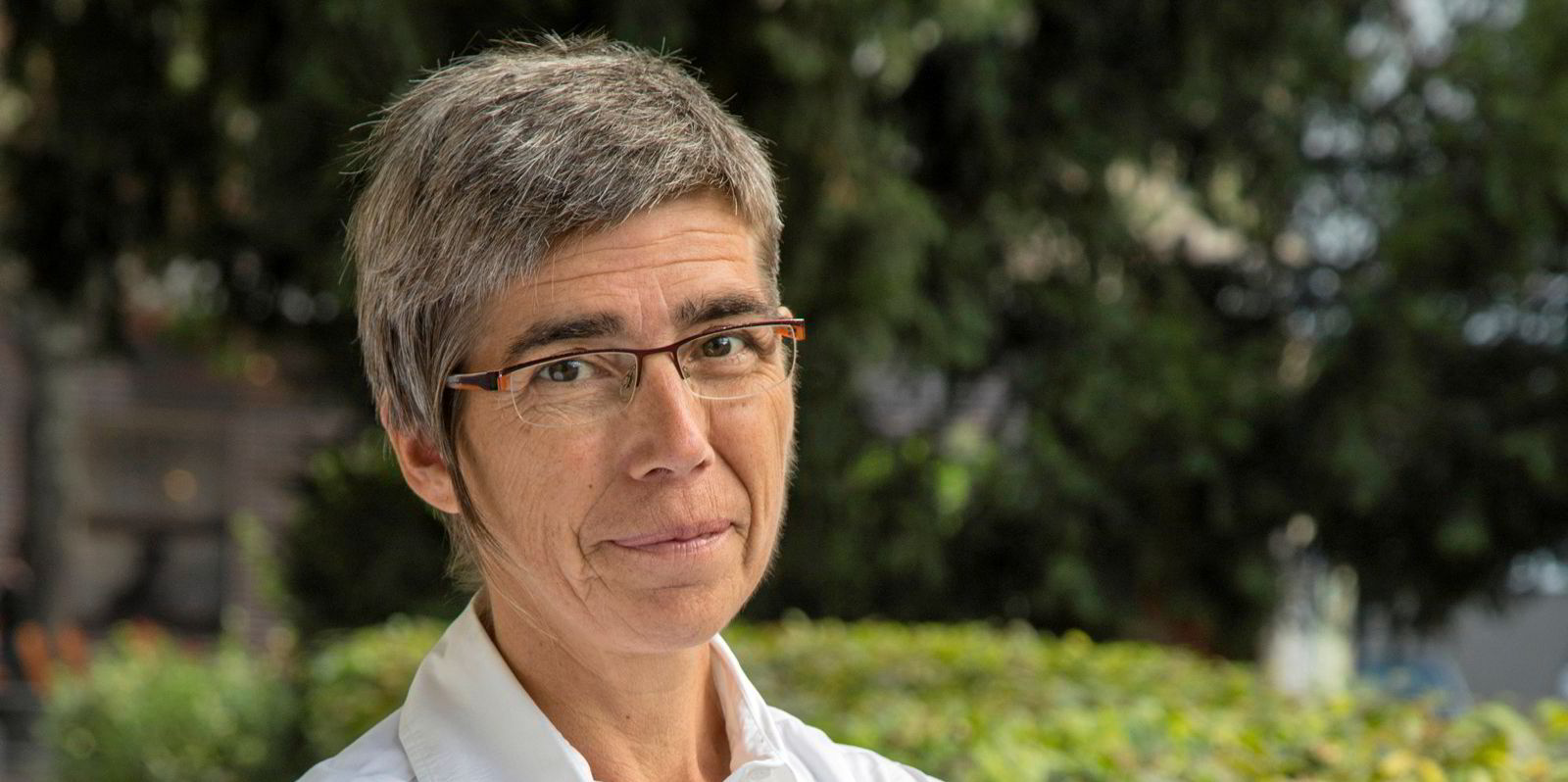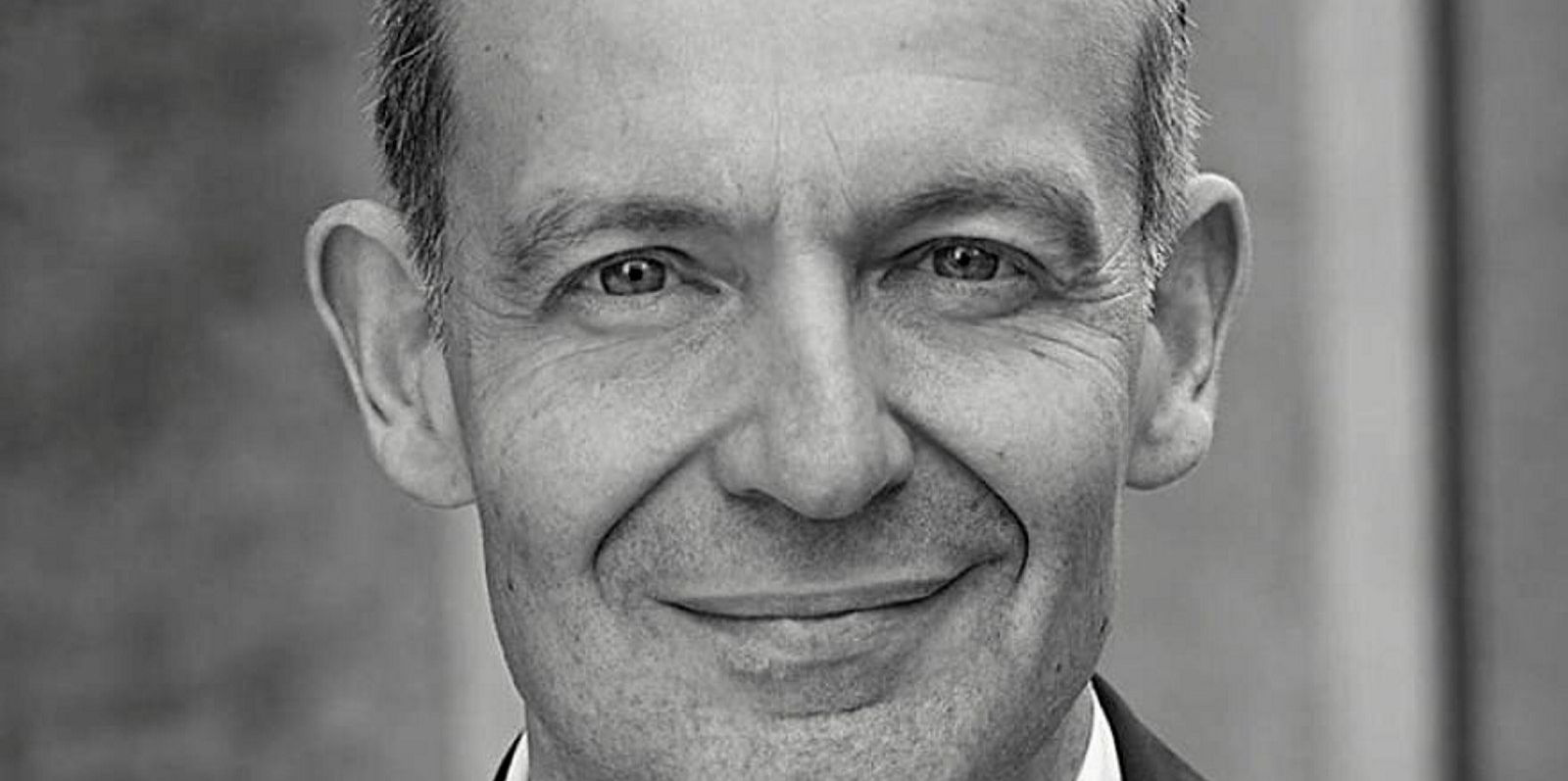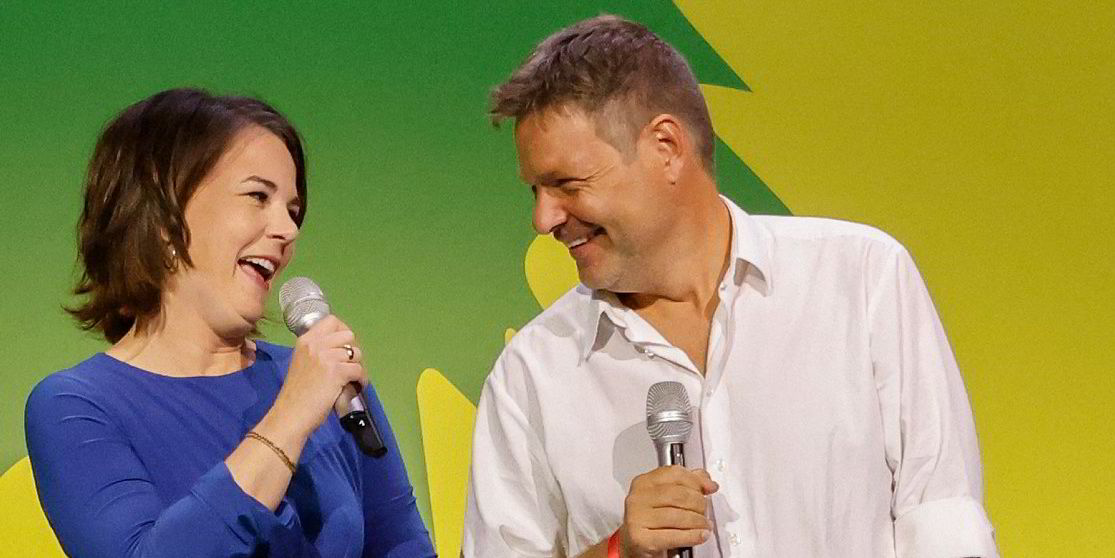Germany's incoming government has been careful in its words about oceangoing shipping so far.
Its 178-page manifesto contains only vague references to the maritime industry, creating the impression that Germany's three-party coalition of social democrats, Greens and economic liberals is hedging its bets on policy.
However, at a European Union level — where it matters most — the new government will likely push shipping towards tougher and more ambitious environmental goals.
That is primarily due to the ascendancy of the country's Green party after 16 years in opposition. They are the second-biggest partner in the ruling coalition that took power following national elections in September.
Most cabinet posts that matter in future climate-related negotiations in Brussels are in Green hands.
Annalena Baerbock and Robert Habeck, the party's two top politicians, are widely expected to respectively head the foreign ministry and a new super ministry in charge of the economy and climate policy.
Cutting no slack
Although far from being radicals, Baerbock, Habeck and the Green party are likely to make sure that chancellor Olaf Scholz — a middle-of-the-road social democrat — sticks to the coalition's pledge to make tackling global warming a top priority.
The coalition partners have already committed to support rising carbon prices at an EU level.
The new administration has also agreed to bring forward a deadline to stop the burning of coal for electricity production in Germany by eight years to 2030.
With pledges such as these, it is hard to imagine Germany — the EU's biggest and most influential country — cutting any slack to shipping in negotiations ahead.

Such negotiations will likely focus on a key decision by EU governments over whether or not to water down a proposal by the European Commission — the executive branch of the bloc — to include shipping in the EU Emissions Trading System (ETS) as part of its Fit for 55 decarbonisation package.
Fit for 55 sets out the EU's plans to reduce emissions by at least 55% by 2030, with the ultimate aim of Europe becoming the world's first climate-neutral continent by 2050.
The Green party has already revealed its desire to see shipping at the forefront of Europe's fight against climate change.
One of its members, Jutta Paulus, was the European Parliament rapporteur when EU lawmakers demanded last year that shipping be included in the ETS.
"Monitoring and reporting CO2 emissions is important, but statistics alone do not save a single gram of greenhouse gas," Paulus said at the time.
Voices calling for tougher unilateral environmental action by the EU are likely to get louder after the International Maritime Organization was seen as failing once again to commit to more ambitious climate measures at its latest meeting.
"Efforts to weaken the Fit for 55 package show that the EU's public image as a climate frontrunner stands on feet of clay," Paulus said on 24 November after the COP26 meeting in Glasgow.

How close to their heart?
Industry sources critical of Fit for 55, within and outside Germany, may be hoping that the coalition's junior partner — the pro-business Liberal FDP party — may help soften any blow to shipping.
The FDP may indeed be in a good position to do so. Its secretary general Volker Wissing is widely expected to head the transport ministry, which is the portfolio most immediately relevant to shipping.
Wissing's hand may already be apparent in the coalition manifesto, which states that in designing Fit for 55, policymakers should not lose sight of the burden imposed on shipping and its wider impact on the industry’s competitiveness.
However, in reality, the FDP is unlikely to spend its limited political capital to curry favour with shipping companies concerned about carbon emissions and regulatory compliance costs.
FDP chief Christian Lindner is far more likely to pull his weight in matters that are closer to his heart and the electorate. That includes fiscal rectitude, which Lindner will oversee from his role as finance minister, as well as the German car owners' right to drive at high speed on the country's autobahn.



